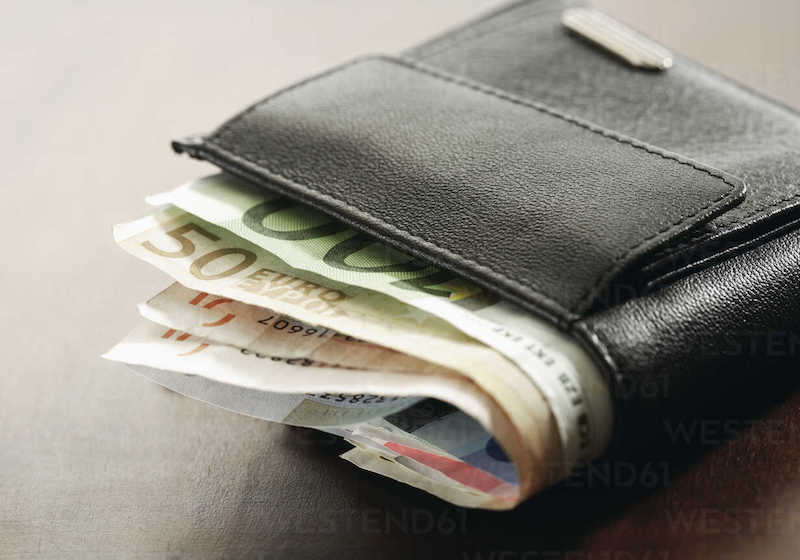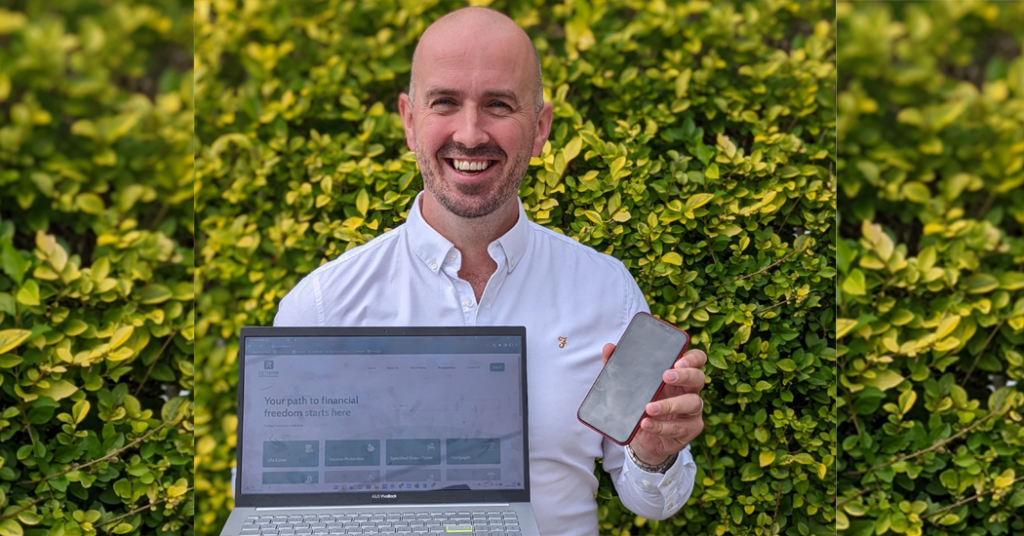Donegal Daily’s new financial columnist Sean McNulty cuts through the bluster of our finances and gets straight to the heart of what we all want to hear – how to save money.
“The surge in the cost of living is being driven by forces outside of our control. And I always say ‘don’t stress about what you can’t control, except when it comes to money.’
“Yes, government are planning on helping, however there is a lot you can do to help yourself too. Good financial habits should be a way of life. Instead, we seem happy to squander our money and settle for bad deals that eat into our wealth.
“With energy costs rising exponentially these days, many families are worried about what is around the corner as we need to spend more on heating our homes during Winter. With fuel costs seeming to stabilise and come down slightly there is more good news with the government reportedly set to give households a total of €600 off their bills over the next few months. This is expected to be done in three instalments of €200 energy credits by before and after Christmas.
“While support is good, moving yourself into a financial position where you become less dependent on political moves such as this is much more empowering. Below I lay out some guidelines to help get you on the right path. And that is all you need to do to start; get on the path, make a plan, understand where all your money goes.
Get into a financial mind-set
You must first, be honest with yourself, that this is what you want to do. And if you want to improve things financially, you need to work from a plan. A small plan with small goals will do to start with, but you must have a plan. Write it down and have it placed somewhere that you are going to see it every day. Whether you want to build up a deposit or a rainy day fund, stop yourself going further into debt, or get rid of some debt, write it down and write down the steps it is going to take to get there.
Spend less money
It really is as simple a conclusion as that. It is far too easy to spend money online and in the shops. Tap and go and one-click purchases are the damnation of a hopeful saver. And yes, we all buy stuff we don’t need. Next time you are on the fence about a purchase, imagine a person walking up to you with that item in one-hand and the cash equivalent in the other. If you need the item, you are going to take the item. If you don’t need it, you would more than likely take the cash. So put the item down or empty the shopping cart. Another strategy is if you want something but don’t need it, leave it a few days and come back and see if you still need it.
Waste less money
Make your lunch every day. It is convenient to head to the shop and pick up a salad, sandwich or deli food. But if you didn’t spend that €10 a day on lunch you would save €321,000 over your career. Startling, but true! 10 a day, 50 a week, 2,600 a year and add in 7% interest rate growth over a 40-year investment.
Batch meal prep is an especially sound practice. It is going to save you in the long term and help reduce your grocery spend and food wastage. Good discipline is required but you’ll find it saves you time too. Buy in bulk and use the “price per kg” as your guide especially for meats, and you’ll find that loose fruit and veg is almost always cheaper than the packaged ones. There are tonnes of these hacks online, a quick search (later) will enlighten you further.
Energy conservation
Pinergy found that 20% of all household energy is wasted. We don’t need to live like hermits and switch the boiler off completely, but a few adjustments could save you loads. The Energy Saving Trust UK recommends heating your home to between 18 to 21 degrees Celsius during winter, so if you, like many have the digital thermostat consider adjusting things down to save costs. The heat difference will be small but with fuel being a considerable cost this winter, the savings could be significant. Yes, your appliances like TVs, laptops etc still use power on standby so switch all the sockets off when they are not in use, especially at bedtime.
Skim the subscriptions
Do you know how many subscriptions you have? How many could you cancel and not miss, and how many could you switch and get a better deal? We went from only 2 channels to 1,000 in a pretty quick timeframe. Now, most households have multiple TV and music streaming subscriptions and not enough hours in the day to watch them. You’re paying for a constant service that you probably don’t use 23 hours of the day. Look at your bank statement and find the monthly direct debits. Consider the savings that could be made without a few of the non-essentials.
Regarding the bigger items, there are many providers on the market and many deals to win your business. If you are not switching providers for broadband, phone and electric every couple of years then you are definitely at a disadvantage. The are stark differences in the standing charges of the electric and gas providers. Get onto a price comparison site and check the savings.
Start the Christmas saving now
Get prepared for the Christmas costs. If we are generally bad at saving and leave the presents to the last minute, then all your shopping is coming out of one pay slip. This will have a knock-on effect into December and make for a meagre January. So, get prepped in advance and build your own present fund starting today. Why today? According to researchers at the University of College London it takes 66 days to create a habit. And guess what? It’s exactly 66 days from now until Black Friday. It doesn’t matter if you buy presents that day or not, but let’s use it as a goal. So for 66 days in a row, you are going to save something. What’s required – pick an amount for your goal e.g. €1,000 and divide by 66, that’s €15 a day. You are going to commit to saving your daily amount each and every day. You can set up a ‘vault’ in Revolut (takes 30 seconds), or get a jar at the house and track it on a calendar (digital or paper). Set daily reminders on your phone if you have to.
The 2023 budget is due in one week and a one-time financial package of around €3 billion is due to be announced in a bid to help households struggling with the cost of living crisis. The personal tax credit is expected to jump €100 to and other tax adjustments that can save a household €1,000 per year. Needless to say next weeks article will be based on the budget and what it means for the average household. Any questions, please don’t be afraid to ask here or email me at info@rethinkmoney.ie if you want to book a one-to-one to review your finances.
Sean McNulty is the founder and Managing Director of Rethink Money Ltd, a financial advisory company based in Letterkenny. Sean’s company is a digital-first advisor with a bespoke software to help clients best manage their financial needs. Free financial reviews can be booked by messaging info@rethinkmoney.ie or booking via the website www.rethinkmoney.ie









